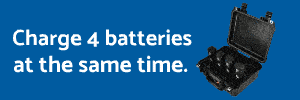this is from the faa site regarding pilot lic's...
To my knowledge, a model aircraft is considered an "aircraft" and hence an operator must follow the regulations. Which would mean to be the PIC you would need at least a sports pilot lic. thots???
Is an FAA-issued pilot certificate required to operate a civil UAS under an experimental airworthiness certificate or a grant of exemption under Section 333?
If the aircraft is issued an airworthiness certificate, a pilot certificate is required. 5
Pilot certification requirements for petitions for exemption under Section 333 are evaluated on a case-by-case basis. While Section 333 grants the Secretary of Transportation flexibility with regard to airworthiness certification requirements, it does not grant the Secretary any flexibility with regard to airman certification standards as outlined in Sections 44703 and 44711 of Title 49 of the United States Code (49 USC). An FAA airman certificate is required to operate an aircraft in the National Airspace System.
To my knowledge, a model aircraft is considered an "aircraft" and hence an operator must follow the regulations. Which would mean to be the PIC you would need at least a sports pilot lic. thots???
Is an FAA-issued pilot certificate required to operate a civil UAS under an experimental airworthiness certificate or a grant of exemption under Section 333?
If the aircraft is issued an airworthiness certificate, a pilot certificate is required. 5
Pilot certification requirements for petitions for exemption under Section 333 are evaluated on a case-by-case basis. While Section 333 grants the Secretary of Transportation flexibility with regard to airworthiness certification requirements, it does not grant the Secretary any flexibility with regard to airman certification standards as outlined in Sections 44703 and 44711 of Title 49 of the United States Code (49 USC). An FAA airman certificate is required to operate an aircraft in the National Airspace System.







